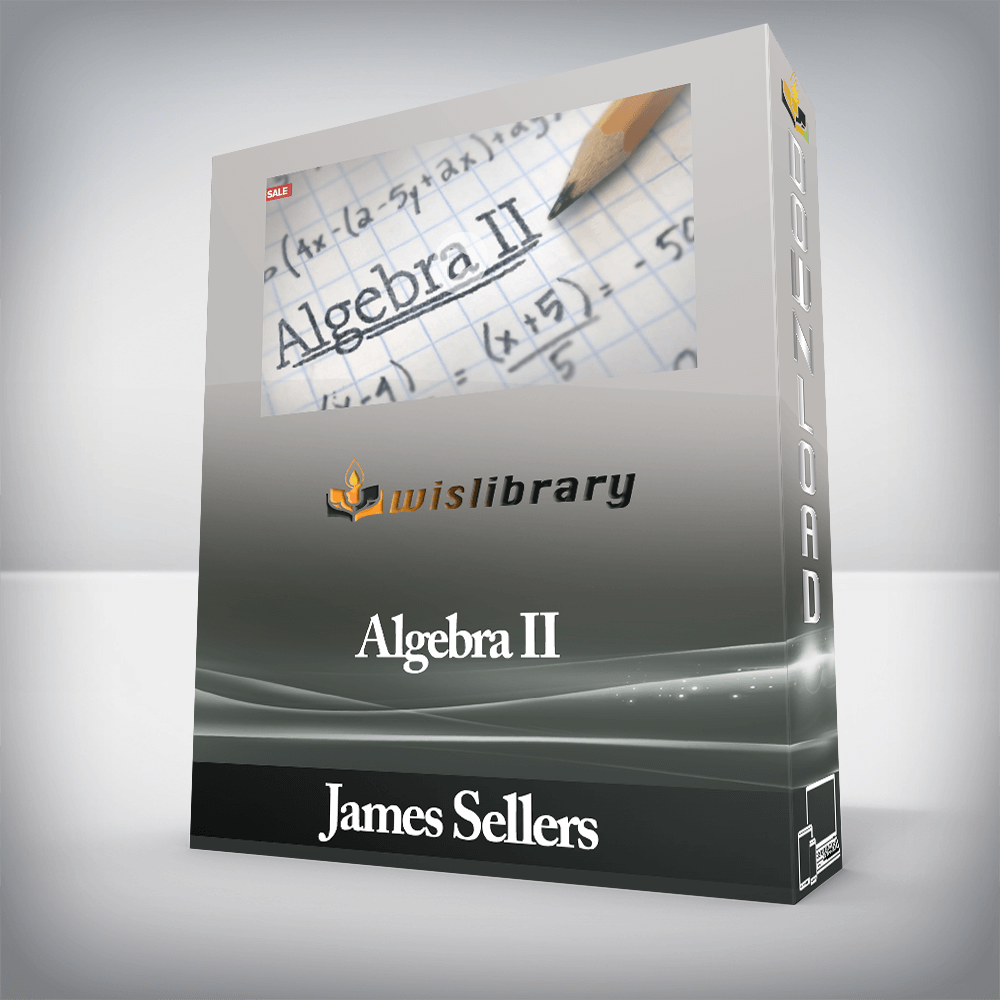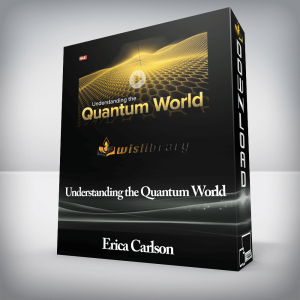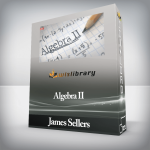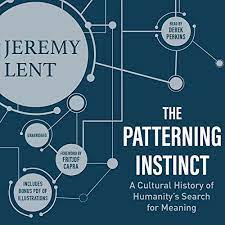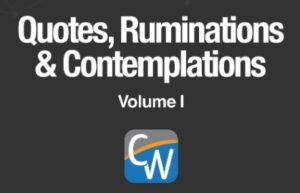James Sellers – Algebra IICourse OverviewAlgebra II is the fork in the road. Those who succeed in this second part of the algebra sequence are well on their way to precalculus, calculus, and higher mathematics, which open the door to careers in science, engineering, medicine, economics, information technology, and many other fields. And since algebraic thinking is found in almost every sphere of modern life, a thorough grounding in this abstract discipline is essential for many nontechnical careers as well, from law to business to graphic arts.Such benefits aside, Algebra II is a deeply rewarding subject in its own right that goes well beyond the rudiments of signed numbers, symbols, and simple equations learned in Algebra I. Indeed, the transition from Algebra I to Algebra II is like the leap from the first to the second year of a language, when you make your first steps toward genuine fluency. With the basic concepts firmly in place, you are ready to extend your skills in exciting new directions and to start to think mathematically.Therefore it is essential that you stay the course in your study of algebra. Among the advantages cited in Algebra II by award-winning Professor James A. Sellers of The Pennsylvania State University are these:Perseverance in algebra pays off: Those who master algebra in high school are much more likely to succeed not just in college-level math courses, but in college in general.Algebra is a valuable tool of reasoning: With countless daily uses that may not seem to be algebra problems, algebra comes in handy for everything from planning a party to organizing a trip to negotiating a loan.Algebra is the foundation of calculus: Those skilled in algebra will find calculus more comprehensible—which makes all the difference in understanding a mathematical field that underlies physics, engineering, and so much more.Through Professor Sellers’s clear and inspiring instruction, Algebra II gives you the tools you need to thrive in a core skill of mathematics. In 36 engaging half-hour lessons, Professor Sellers walks you through hundreds of problems, showing every step in their solution and highlighting the most common missteps made by students.A Course for Learners of All AgesA gifted speaker and eloquent explainer of ideas, Professor Sellers shows that algebra can be an exciting intellectual adventure for any age and not nearly as difficult as many students fear. Those who will benefit from Professor Sellers’s user-friendly approach includehigh-school students currently enrolled in an Algebra II class and their parents, who seek an outstanding private tutor;home-schooled students and others wishing to learn Algebra II on their own with these 18 hours of lessons and the accompanying mini-textbook;college students struggling with math requirements and who need to strengthen their grasp of this fundamental subject;math teachers searching for a better approach to Algebra II, guided by a professor who knows how to teach the subject;summer learners who have completed Algebra I and want a head start on Algebra II;anyone curious about the rigorous style of thought that underlies mathematics, the sciences, and our technological world.Step Up to the Next LevelTaking your mathematics education to the next level, Algebra II starts by reviewing concepts from Algebra I and sharpening your problem-solving skills in linear and quadratic equations and other basic procedures. Professor Sellers begins with the simplest examples and gradually adds complexity to build confidence. As the course progresses, he introduces new topics, such as conic sections, roots and radicals, exponential and logarithmic functions, and elementary probability.As you solve problems with Professor Sellers, you will see that the ideas behind algebra are wonderfully interconnected, that there are often several routes to a solution, and that concepts and procedures such as the following have a host of applications:Functions: One of the simplest and most powerful ideas introduced in algebra is the function. Defined as a relation between two variables so that for any given input value there is exactly one output value, functions are used throughout higher mathematics.Graphing: Professor Sellers notes that “algebra is much more than solving equations and manipulating algebraic expressions.†By plotting an equation or a function as a graph, algebra’s key properties often come sharply into focus.Polynomials: By the time you meet the term “polynomial†in lecture 19, you will have dealt with dozens of these very useful expressions, including linear and quadratic equations. Professor Sellers shows how to perform complex operations on polynomials with ease.Conic sections: Among algebra’s countless links to the real world are conic sections, the class of curves formed by slicing a cone at different angles. These curves correspond to everything from planetary orbits to the shape of satellite TV dishes.Roots and radicals: You are probably already familiar with square roots, but there are also cube roots, 4th roots, 5th roots, and so on. “Radical†comes from the Latin word for “root†and refers to symbols and operations involving roots.Exponents and logarithms: Exponential growth and decay occur throughout nature and are modeled with exponential functions and their inverse, logarithmic functions. Like so many tools in algebra, the concepts are simple, their applications truly awe-inspiring.With your growing mathematical maturity, you will learn to deploy an arsenal of formulas, theorems, and rules of thumb that provide a deeper understanding of patterns in algebra, while allowing you to analyze and solve equations more quickly than you imagined. Professor Sellers introduces these very useful techniques and more:Vertical line test tells you instantly whether a graph represents a function.Quadratic formula allows you to solve any quadratic equation, no matter how “messy.â€Fundamental theorem of algebra specifies how many roots exist for a given polynomial.Binomial theorem gives you the key to the coefficients for a binomial of any power.Change of base formula permits you to use a calculator to evaluate logarithms that are not in base 10 or e.“Pert†formula applies algebra to the real-world problem of calculating continuously compounded interest.Professor Sellers ends the course with three entertaining lectures showing how to solve problems in combinatorics and probability, which have applications in some intriguing areas, whether you need to calculate the possible outcomes in a match of five contestants, the potential three-topping pizzas when there are eight toppings to choose from, or the probability of being dealt different hands in poker.Dispel the Fog of Confusion!Practically everyone who has taken algebra has spent time in “the fog,†when new ideas just don’t make sense. As a winner of the Teresa Cohen Mathematics Service Award from The Pennsylvania State University, Professor Sellers is unusually adept at dispelling the fog.He does this by explaining the same concept in a variety of insightful ways, by carefully choosing problems that build on each other incrementally, and through his years of experience in addressing areas where students have the most trouble. Whenever the going gets tough, he shows you the path through to a solution and then makes doubly sure that you know the way.This sense of ease and adventure in tackling the richly varied terrain of algebra characterizes the experience you will have with this superstar teacher and Algebra II. You will learn to solve problems that look impossible at first glance, find that you enjoy them more than you ever thought possible, and look forward to even more challenging exploits as you continue your mathematics education.36 Lectures1An Introduction to Algebra II2Solving Linear Equations3Solving Equations Involving Absolute Values4Linear Equations and Functions5Graphing Essentials6Functions—Introduction, Examples, Terminology7Systems of 2 Linear Equations, Part 18Systems of 2 Linear Equations, Part 29Systems of 3 Linear Equations10Solving Systems of Linear Inequalities11An Introduction to Quadratic Functions12Quadratic Equations—Factoring13Quadratic Equations—Square Roots14Completing the Square15Using the Quadratic Formula16Solving Quadratic Inequalities17Conic Sections—Parabolas and Hyperbolas18Conic Sections—Circles and Ellipses19An Introduction to Polynomials20Graphing Polynomial Functions21Combining Polynomials22Solving Special Polynomial Equations23Rational Roots of Polynomial Equations24The Fundamental Theorem of Algebra25Roots and Radical Expressions26Solving Equations Involving Radicals27Graphing Power, Radical, and Root Functions28An Introduction to Rational Functions29The Algebra of Rational Functions30Partial Fractions31An Introduction to Exponential Functions32An Introduction to Logarithmic Functions33Uses of Exponential and Logarithmic Functions34The Binomial Theorem35Permutations and Combinations36Elementary ProbabilityThere are no reviews yet.Add a Review Cancel replyYou must be logged in to post a review.

